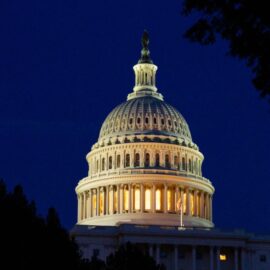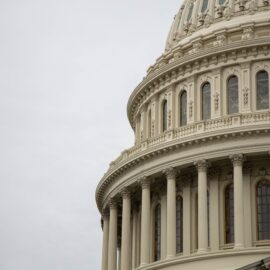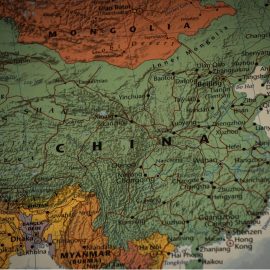

This article is an excerpt from the Shortform book guide to "The Power Elite" by C. Wright Mills. Shortform has the world's best summaries and analyses of books you should be reading.
Like this article? Sign up for a free trial here.
How did the role of American intellectuals change after World War II? What impact has this had on political power?
In The Power Elite, American sociologist C. Wright Mills argues that, traditionally, intellectuals in America helped Americans understand what was going on in their society, how it affected their lives, and what they could do about it. However, he claims that this changed after World War II.
Keep reading to learn how liberal intellectuals contribute to the influence of the power elite in America.
Liberal Intellectuals & America’s Power Elite
Writing in 1956, Mills suggests that the majority of American intellectuals fail to acknowledge, question, or challenge the rule of the power elite. This has also taken power away from the American people by depriving them of their ability to understand what’s going on in government, why it’s going on, and how it affects them. According to Mills, post-war liberal intellectuals fail to acknowledge the power elite. (It should be noted that he also points a finger at post-war conservative intellectuals.)
Mills suggests that, instead of acknowledging or challenging the rule of the power elite, post-war American liberals are attempting to mount a disorganized defense of the status quo. This is because liberals held power for decades before World War II, leading to two main consequences:
- Liberal grassroots organization has greatly diminished because, in the years before the war, it wasn’t necessary for liberals to stay in power.
- The New Deal made a significant portion of liberal political projects into federal law, meaning many post-war liberals just want to keep things the way they are.
Finally, Mills claims that, as an ideology, liberalism in post-war America has essentially become meaningless. Liberal ideals—a government of the people, limits on government power, freedom of political expression, and so on—are frequently used in the rhetoric of both liberals and conservatives to justify vastly different policies. In the meantime, neither group actually tries to fight for these ideals. The power elite has worked to take power away from average Americans, bypass limits on government power, and monopolize political discussion—and liberals and conservatives alike haven’t tried to stop them.
| A New Liberalism? In the decades since The Power Elite was written, liberalism and liberals have seen a significant ideological shift. Starting in the 1970s, many liberals trended away from large-scale government social programs like the New Deal and the Great Society, instead trending toward neoliberalism. Neoliberals embrace a lot of classic liberalism’s emphasis on free market economics and the limited role of the government in economic affairs. As such, neoliberal politicians like Jimmy Carter or Bill Clinton focused on corporate deregulation and encouraging free trade. These politicians and their supporters view neoliberalism as a way of escaping the stagnant New Deal “status quo,” like what Mills discusses. Critics of neoliberalism, on the other hand, view it as a further “hollowing out” of liberalism by the elite. |

———End of Preview———
Like what you just read? Read the rest of the world's best book summary and analysis of C. Wright Mills's "The Power Elite" at Shortform.
Here's what you'll find in our full The Power Elite summary:
- How a group of corporate elite controls America's politics and economics
- How the elite exploit America's institutions for their own benefit
- A look at the dangers that arise when citizens feel powerless






